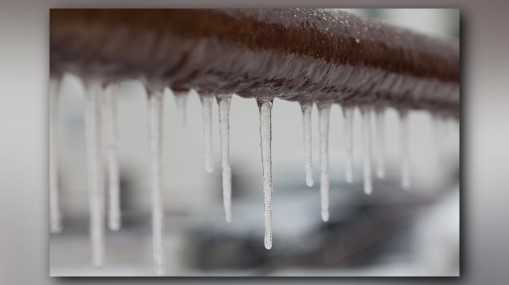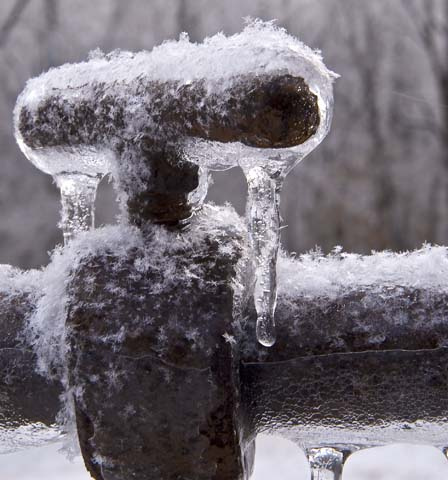Avoiding Frozen Plumbing in Winter: Key Advice
Avoiding Frozen Plumbing in Winter: Key Advice
Blog Article
What're your thoughts with regards to Preventing and dealing with frozen pipes?

Winter can damage your plumbing, particularly by freezing pipes. Below's how to stop it from taking place and what to do if it does.
Introduction
As temperatures decline, the risk of frozen pipelines boosts, possibly bring about pricey repairs and water damages. Comprehending just how to avoid icy pipelines is essential for home owners in chilly environments.
Prevention Tips
Insulating prone pipes
Wrap pipelines in insulation sleeves or make use of warmth tape to protect them from freezing temperatures. Concentrate on pipes in unheated or external areas of the home.
Home heating techniques
Keep indoor areas appropriately heated, particularly areas with pipes. Open cupboard doors to enable cozy air to circulate around pipes under sinks.
How to recognize frozen pipes
Search for reduced water flow from faucets, unusual odors or sounds from pipelines, and noticeable frost on subjected pipelines.
Long-Term Solutions
Structural adjustments
Consider rerouting pipes far from outside wall surfaces or unheated areas. Include added insulation to attics, basements, and crawl spaces.
Upgrading insulation
Buy top notch insulation for pipes, attic rooms, and wall surfaces. Proper insulation aids maintain regular temperature levels and lowers the risk of frozen pipes.
Protecting Outside Plumbing
Yard hose pipes and exterior faucets
Separate and drain yard hoses prior to winter. Set up frost-proof faucets or cover outdoor taps with shielded caps.
Comprehending Icy Pipelines
What causes pipes to ice up?
Pipelines ice up when revealed to temperature levels listed below 32 ° F (0 ° C) for expanded durations. As water inside the pipelines ices up, it broadens, taxing the pipeline wall surfaces and possibly triggering them to burst.
Threats and damages
Icy pipes can cause water supply interruptions, residential or commercial property damage, and costly fixings. Ruptured pipelines can flood homes and cause comprehensive structural damage.
Signs of Frozen Pipeline
Identifying frozen pipes early can prevent them from bursting.
What to Do If Your Pipes Freeze
Immediate actions to take
If you suspect icy pipelines, keep taps open up to soothe stress as the ice melts. Use a hairdryer or towels taken in warm water to thaw pipes gradually.
Final thought
Avoiding icy pipes calls for proactive procedures and fast feedbacks. By recognizing the reasons, signs, and safety nets, home owners can shield their pipes throughout cold weather.
Helpful Tips to Prevent Frozen Pipes this Winter
UNDERSTANDING THE BASICS: WHY PIPES FREEZE AND WHY IT’S A PROBLEM
Water freezing inside pipes is common during the winter months, but understanding why pipes freeze, and the potential problems it can cause is crucial in preventing such incidents. This section will delve into the basics of why pipes freeze and the associated problems that may arise.
THE SCIENCE BEHIND FROZEN PIPES
When water reaches freezing temperatures, it undergoes a physical transformation and solidifies into ice. This expansion of water as it freezes is the primary reason pipes can burst. As the water inside the pipe freezes, it expands, creating immense pressure on the walls. If the pressure becomes too great, the pipe can crack or rupture, leading to leaks and water damage.
FACTORS THAT CONTRIBUTE TO PIPE FREEZING
Low Temperatures: Extremely cold weather, especially below freezing, increases the risk of pipes freezing. Uninsulated or Poorly Insulated Pipes: Pipes located in unheated areas, such as basements, crawl spaces, or attics, are more prone to freezing. Insufficient insulation or lack of insulation altogether exacerbates the problem. Exterior Wall Exposure: Pipes running along exterior walls are susceptible to freezing as they encounter colder temperatures outside. Lack of Heating or Temperature Regulation: Inadequate heating or inconsistent temperature control in your home can contribute to frozen pipes. PROBLEMS CAUSED BY FROZEN PIPES
- Pipe Bursting: As mentioned earlier, the expansion of water as it freezes can cause pipes to burst, resulting in significant water damage.
- Water Damage: When pipes burst, it can lead to flooding and water damage to your property, including walls, ceilings, flooring, and personal belongings.
- Structural Damage: Prolonged exposure to water from burst pipes can compromise the structural integrity of your home, leading to costly repairs.
- Mold and Mildew Growth: Excess moisture from water damage can create a favorable environment for mold and mildew growth, posing health risks to occupants.
- Disrupted Water Supply: Frozen pipes can also result in a complete or partial loss of water supply until the issue is resolved.
WHY CERTAIN PIPES ARE MORE PRONE TO FREEZING
- Location: Pipes located in unheated or poorly insulated areas, such as basements, crawl spaces, attics, or exterior walls, are at higher risk of freezing.
- Exterior Pipes: Outdoor pipes, such as those used for irrigation or exposed plumbing, are particularly vulnerable to freezing as they are directly exposed to the elements.
- Supply Lines: Pipes that carry water from the main water supply into your home, including the main water line, are critical to protect as freezing in these lines can affect your entire plumbing system.
- Underground Pipes: Pipes buried underground, such as those connected to sprinkler systems or outdoor faucets, can be susceptible to freezing if not properly insulated.
https://busybusy.com/blog/helpful-tips-to-prevent-frozen-pipes-this-winter/

As a person who reads about How to Prevent Your Pipes From Freezing, I imagined sharing that piece of content was worthwhile. If you enjoyed reading our page plz don't forget to pass it around. Kudos for being here. Don't forget to pay a visit to our site back soon.
View More Report this page